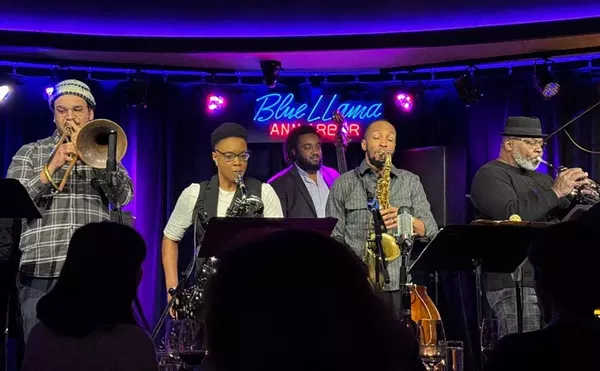The cops were polite when they arrived just after daybreak at the pop singer’s São Paolo apartment to bring him in for questioning. What a hassle, what a nuisance for someone who’d just been nodding off to sleep. Then one cop said something offhanded and chilling: “You’d better take a toothbrush.”
With that, the singer’s life took a frightening turn.
In 1968, Caetano Veloso and his good friend Gilberto Gil were leading lights of the rock revolution, Brazilian-style. Tropicalia or tropicalismo, as it was variously called, turned the previously popular bossa nova inside out; it also did a giddy samba step away from the Old Left to declare a “festive left” — at just the time that the country’s four-year-old military dictatorship was lurching right. Bad timing.
The dictators’ minions jailed Veloso and Gil for two months, sometimes in solitary confinement. Veloso feared for his sanity. He listened at times as his wife pleaded in an anteroom that his holders at least admit he was there. He was spared torture, but not the sound of
the beatings administered down the hall. On the day his “famous head of hair” was shorn, he was convinced he was being escorted to his execution.
Eventually, Veloso and Gil were released to house arrest and then exile in swinging London until 1972. They returned, becoming bigger stars, ever more voices for their generation. Veloso, in particular, has become an arch melodist. He celebrates his roots in earlier Brazilian styles, bowing to bossa innovator Joao Gilberto as his “supreme master”; he can also hoot with the best rockers anywhere.
Lyrically he’s willing to travel anywhere, though always with an abundance of class — and often with a dash of surrealism. Always a romantic, he studies the hopes and failures of love; still the lefty intellectual, he uses song to poke at subjects from the legacies of slavery to the wonders of Brazilian Portuguese.
Those “days we call heroic” are recounted in Veloso’s long-awaited memoir Tropical Truth: A Story of Music and Revolution in Brazil (Alfred Knopf, $26, 354 pp.), which arrives along with Live in Bahia (Nonesuch), a compelling two-CD set, and with a U.S. tour backed by the same nine-piece band (four of them percussionists) that accompanies him on the record.
For all the drama of its story, Tropical Truth is surprisingly disjointed in the telling. Veloso initially saw himself less an artist than a fellow traveler-adviser for his younger sister Bethania (a star before Caetano), Gil and others in their bohemian circle. Tropical Truth often seems more the work of the academic he says he might have been than the lyricist he became. But its real problem is that it’s all too easy to nod in agreement when Veloso admits that writing during recording-session breaks and wee hours on tour “perhaps overexposed the double (and somewhat contradictory) tendency toward digression and ellipsis that confounds my thinking, my conversations and my writings.” A police van ride en route to jail, for instance, is an odd place for a couple hundred words about sleeping habits and the admission that he hadn’t yet read Marcel Proust. Yet, it’s hard to know the outline of his life and not be curious about filling it, digressions aside.
Meanwhile Live in Bahia directly affirms both his artistry and his status at home. The audience makes a sing-along of “Multicolored Train” with its rainbow of “rosy pink grass” and such; on another tune, fans echo his call “ … to fight, but only for the right to our strange kind of love.” And after he spits out a fragmented, graphic rap on race and class struggle in “Haiti,” they join him for the lilting chorus that proclaims, “Think of Haiti, pray for Haiti/Haiti’s right here, Haiti’s not quite here.”
Uncommon sentiments from an uncommon artist.
Caetano Veloso appears at 8 p.m. Friday at the Michigan Theater, Ann Arbor. Call 800-221-1229 for tickets.
W. Kim Heron is the Metro Times managing editor. Send comments to [email protected].





